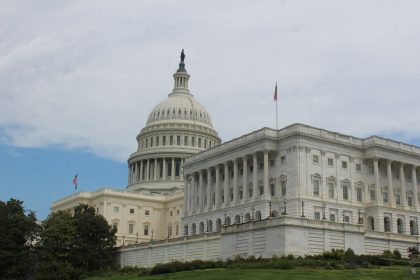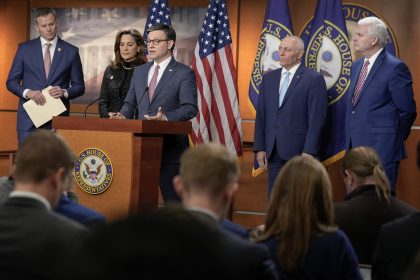Endless Frontier Act Seeks to Bolster US Position in Science, Technology

WASHINGTON – A bipartisan bill with support in both chambers of Congress aims to bolster the nation’s leadership in scientific and technological innovation through greater investment in research that will translate into new industries and create new high-tech jobs.
The bicameral Endless Frontier Act was introduced by Senate Majority Leader Chuck Schumer, D-N.Y., Sen. Todd Young, R-Ind., and Reps. Mike Gallagher, R-Wis. And Ro Khanna, D-Calif.
It has already gotten an appreciative nod from the White House, where Press Secretary Jen Psaki called it “one more encouraging sign of the bipartisan support for investing in America’s competitiveness.”
Specifically, the Endless Frontier Act proposes an expansion of the National Science Foundation with the establishment of a new Technology and Innovation Directorate to advance research and development in 10 key technology focus areas, including artificial intelligence, semiconductors, quantum computing, advanced communications, biotechnology, and advanced energy.
The newly-established Technology and Innovation Directorate would receive $100 billion over five years to invest in basic and advanced research, commercialization, and education and training programs in technology areas critical to national leadership.
An additional $10 billion would be authorized at the Department of Commerce to support regional technology strategies and to designate at least 10 regional technology hubs, awarding funds for comprehensive investment initiatives that position regions across the country as global centers for the research, development, entrepreneurship, and manufacturing of new key technologies.
The Act also establishes a new Supply Chain Resiliency and Crisis Response Program with the national security mission of strengthening critical technology supply chains in the U.S. and with global allies and partners.
To support the country’s national security capabilities, the bill mandates a strategy on national competitiveness and ingenuity in science, research, and manufacturing to support the national security strategy.
Schumer said the intent of the bill is to “address several dangerous weak spots in America’s economy and national security that threaten our global technological leadership.”
“This legislation will enhance American competitiveness with China and other countries by investing in American innovation, creating good-paying American manufacturing and high-tech jobs, and strengthening America’s research and development capabilities. The Endless Frontier Act is the key to preserving America’s position on the world stage as a current and future technological leader in the 21st Century,” he said.
“Just as we did at the outset of the Cold War, we have to substantially increase federal investment in technologies essential for our national survival,” Gallagher said. “This bill makes a down payment on our national leadership and will translate into new American companies, manufacturing and high-tech jobs, and opportunities for regions across the country – most importantly the Midwest – to become a global center of emerging industry–all while ensuring that America, and not the Chinese Communist Party, dominates the critical technologies of the future.”
Psaki said the president shares the co-sponsors’ commitment to making a bold investment in American innovation—including large increases in funding at the National Science Foundation to support both R&D and commercialization, and new funding to support regional economic development “so what is discovered in America can be made in America.”
“The president also welcomes the bill’s focus on strengthening American supply chains – an issue he has taken action on and championed,” Psaki said.
“We look forward to working with Congress to further shape this legislation to renew America’s global leadership in science and technology and to make sure we develop and manufacture the technologies of the future,” she added.
In addition to Sens. Schumer and Young and Reps. Gallagher and Khanna, the Endless Frontier Act is co-sponsored by Reps. Susan Wild, D-Pa., Mike Turner, R-Ohio, Jamaal Bowman, D-N.Y., Brian Fitzpatrick, R-Pa., and Mikie Sherrill, D-N.J.
In the Senate its co-sponsors include Sens. Maggie Hassan, D-N.H., Susan Collins, R-Maine, Chris Coons, D-Del., Rob Portman, R-Ohio, Tammy Baldwin, D-Wis., Lindsey Graham, R-S.C., Gary Peters, D-Mich., Steve Daines, R-Mont., and Roy Blunt, R-Mo.
Act bill text can be found HERE and a summary can be found HERE.
























